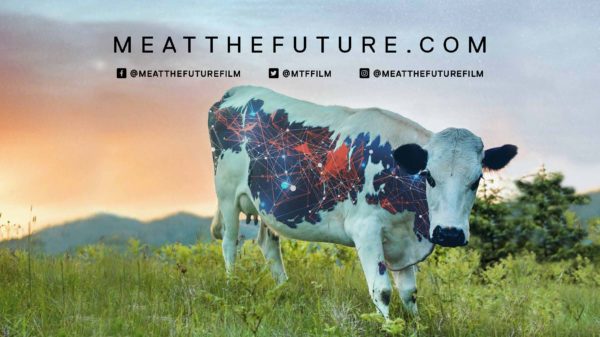With animal agriculture occupying roughly 45% of the world’s ice – free surface area, producing more greenhouse gases than cars, the prospect of meat consumption doubling by 2050 is a wake – up call for solutions. The future may lie with “clean meat,” also referred to as “cell-based meat,” and “cultivated meat” – a food science that grows real meat from animal cells without slaughtering animals. Meat the Future chronicles the birth of a revolutionary industry , and the mission to make it delicious, affordable and sustainable. Documented exclusively from 2016 – 2019, by award – winning filmmaker Liz Marshall (The Ghosts in Our Machine), the film follows the victories, struggles and motivations of the pioneers who are risking everything to bring their product to market in the near future. Meat the Future is a timely, character – driven film focusing largely on Dr. Uma Valeti, a Mayo Clinic – trained c ardiologist , and the co-founder and CEO of Memphis Meats, an American food – tech start – up company. During his childhood in Vijayawada, India, Valeti would dream of meat growing on trees as an alternative to killing animals. Valeti’s co-founder, stem cell biologist Nicholas Genovese, grew up on a family farm where he considered himself the “guardian” of the animals he reluctantly sold for slaughter. Both men cite childhood memories as the motivation for their passion project. Valeti’s inspiration came following his tenure at the Mayo Clinic. While practicing c ardiology he was injecting stem cells into patients hearts as part of a clinical trial to regenerate heart muscle, and it was this scientific procedure that triggered a risky, pas sion – driven career turn . I n 2016, Memphis Meats attracted global attention with the unveiling of the world’s first “cultured” meatball, which cost $18,000 per pound, and in 2017, the world’s first “clean” chicken fillet and duck a l’orange. Together with their team of scientists, Memphis Meats is at the forefront of an industry. They have attracted tens of millions of dollars in investment from the likes of billionaire influencers Bill Gates and Richard Branson, and food giants Tyson and Cargill. Their confidence is buoyed by the plummeting price of the product-in-progress. Affordability point is approaching, as witnessed onscreen over the course of three years. 4 On the food policy and regulatory side, Meat the Future shifts its focus to Washington, D.C. to witness historic public meetings. Ranchers, farmers and meat lobby groups fight to protect their established brand “harvested in the traditional manner” and cell-based meat start-up surge America to be first to market. And there are salivating moments as well, as top-ranked chefs perform their magic on the meat-of-the-future. Throughout this 90 minute documentary, top journalists shine a media spotlight on the birth of an industry. “After a documentary career of exploring global issues, I was determined to follow a solution-focused story, and in 2015, I encountered the emergence of ‘cellular agriculture,’” says director Marshall. “The future of ‘cultivated meat’ is unknown, but its revolutionary promise and journey into the world is a powerful story that I believe will stand the test of time.”
Summary info for schedule – will be hidden on film page

Meat the Future
88-minutes
Screening day / time
Meat the Future
Meat the Future
Filmmaker Notes:
Documentaries are powerful platforms to unveil new ideas and motivate social change. After spending years making consciousness-raising films filmed around the globe, and after the successful release of The Ghosts in Our Machine, I was looking to follow a viable, solution-focused story, and in 2015 came across the emergence of “cellular agriculture.” If growing real meat from animal cells without the need to raise and slaughter animals was indeed underway, I hoped to find a personal entry-point. After meeting Dr. Uma Valeti, the visionary co-founder and CEO of Memphis Meats, I felt certain there was a film. Securing unique access to Uma and his team, and to Bruce Friedrich and his think tank organization The Good Food Institute, provides an exclusive vantage point to chronicle the birth of an industry over three and a half years. Its revolutionary promise and journey into the world is a story that stands the test of time. – Liz Marshall








